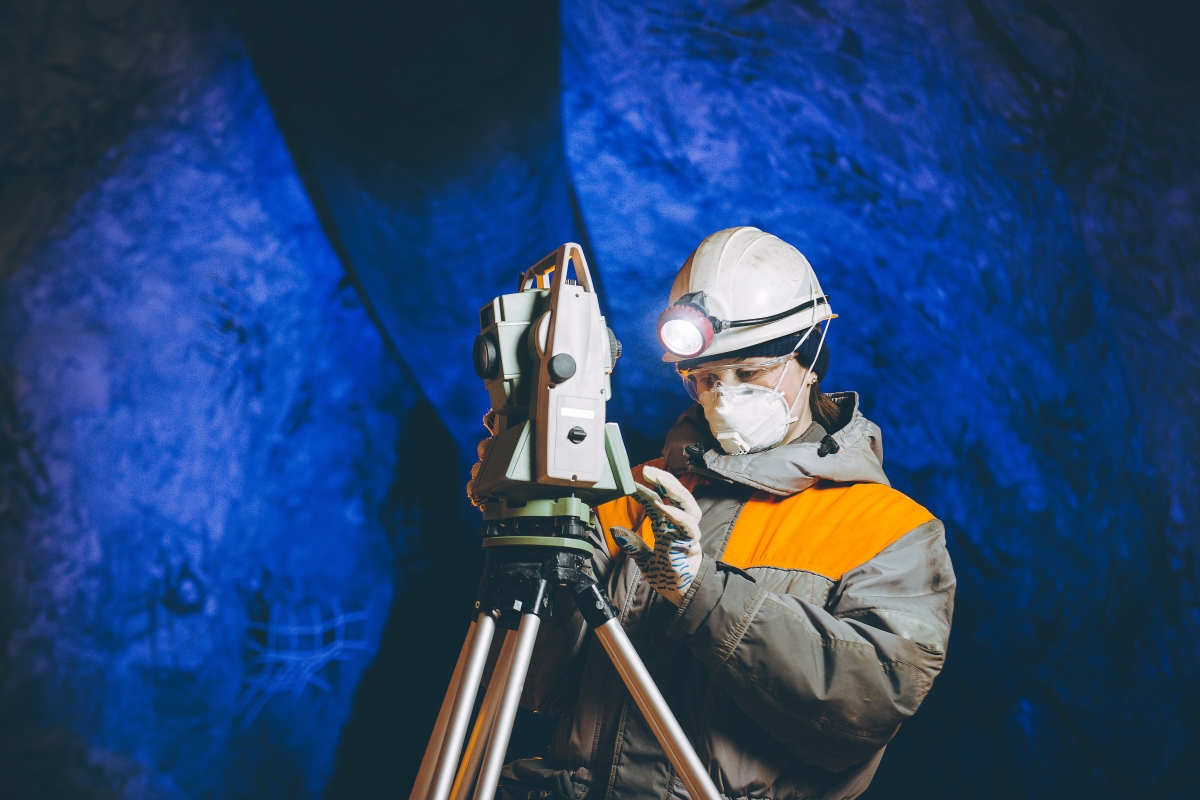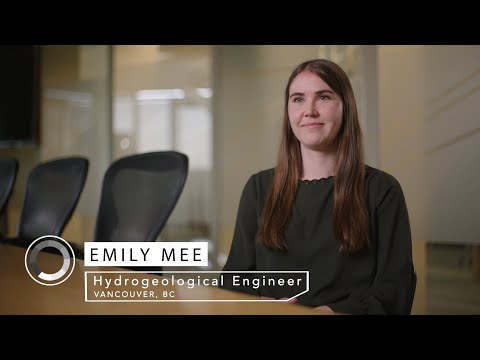Career Overview
Geological engineers carry out geological and geotechnical studies to assess the suitability of locations for urban development, transportation, hydropower, mining, as well as oil and gas projects. They gather and analyze geological data, conduct engineering analyses, provide recommendations and prepare reports.
They may work for consulting engineering companies, electrical utilities, mining and petroleum companies, government or research and educational institutions.
Job Titles
Duties
In general, geological engineers:
- Gather, analyse and map geotechnical, geological, geophysical, surface and groundwater data for civil engineering, mining, petroleum and waste management projects or for regional development
- Prepare recommendations for constructing or improving foundations of civil engineering projects, including rock excavation and erosion control
- Support engineering projects by assessing soil settlement under buildings, stability of excavations, fills and natural slopes, and likely effects of landslides and earthquakes
- Carry out studies on groundwater flow and contamination, and develop regulations for site selection, treatment and construction
- Plan, develop and carry out studies in mining exploration, mine evaluation and feasibility
- Design, develop and implement computer applications for satellite imagery and other earth observation data, geophysics, geochemistry, geology, mapping and related fields
- Assess and communicate the variability and risk associated with geotechnical conditions and natural hazards
- Improve the safety and reliability of engineered structures exposed to rainfall, flood and drought, as well as the projected effects of climate change
- Supervise technologists and technicians, as well as other engineers and scientists
Earnings
Earnings is income that workers receive in exchange for their labour. Depending on the type of employment, earnings can be in the form of wages (hourly), salaries (fixed monthly or annual) or self-employed earnings.
Work Environment
# Workers Employed
1,060% Employed Full Time
73%Work in this occupation is often performed in a structured environment such as an office or school. Geological engineers may also visit outdoor work sites, where they are exposed to a variety of weather conditions.
Career Pathways
Geological engineers often work in a multidisciplinary environment and gain knowledge and skills that may allow them to practise in associated areas such as data science and machine learning, geomorphology, hydrology, hydrogeology, engineering, sales and marketing.
With experience, geological engineers can move into supervisory and senior positions.
Occupational Interests
It’s important to understand what kinds of occupations align with your interests.
For more about occupational interests visit Skills for the Future Workforce > Characteristics.
Here are the top occupational interest(s) for this career profile:
Education, Training and Skills
Geological engineers must:
- Complete a bachelor's degree in geological engineering or in a related discipline such as civil (geotechnical) engineering
- Have at least four years of supervised work experience in engineering
- Successfully complete the National Professional Practice examination
- Be licensed and registered as a Professional Engineer (P.Eng.) with Engineers & Geoscientists British Columbia
Some employers may also require a master's degree or doctorate in geological engineering or a related discipline such as civil (geotechnical) engineering.
Geological engineers who are certified for that occupation by a regulator elsewhere in Canada can apply for the same certification from the regulator in B.C. under the terms of the Canadian Free Trade Agreement (CFTA). Most applicants who are transferring their credentials from elsewhere in Canada will not be required to complete additional training or testing. However, the B.C. regulator may ask applicants to provide further information such as a letter of good standing, references or a criminal record check.
For information about labour mobility in Canada, visit www.workersmobility.ca.
For those who trained outside of Canada and never received certification from any Canadian jurisdiction, a full assessment is likely needed. Most occupational regulators have a process for assessment and recognize internationally trained applicants.
Contact Engineers & Geoscientists British Columba (EGBC) for details on how to apply for certification in B.C.
View a list of Professional Regulatory Authorities in B.C.
Education programs in B.C.

Top Skills
Every job calls for a certain set of skills. Knowing those skills is the first step in finding a good career fit.
Here, you will find the 10 most relevant workplace skills. Some are more important to achieving success in a certain career than others. These skills may come naturally to you or you may need to gain them through education, training and experience.
See the list of work-related skills below, ranked in order of importance for this career. Check out the list and see if this career matches your skills—take that first step!
Being able to solve novel, ill-defined problems in complex, real-world settings.
Understanding written sentences and paragraphs in work-related documents.
Considering the relative costs and benefits of potential actions to choose the most appropriate one.
Using logic and reasoning to identify the strengths and weaknesses of alternative solutions, conclusions or approaches to problems.
Communicating effectively in writing as appropriate for the needs of the audience.
Talking to others to share information effectively.
Giving full attention to what other people are saying, taking time to understand the points being made, asking questions as appropriate, and not interrupting at inappropriate times.
Using mathematics to solve problems.
Keeping track of and assessing your performance, other individuals, or organizations to make improvements or take corrective action.
Identifying measures or indicators of system performance and the actions needed to improve or correct performance, while meeting the goals of the system.
Labour Market Statistics
Discover data, facts and information that have been gathered and analyzed. Learn about the characteristics of the economy and labour market in B.C.
Employment
Find out about employment types and trends by region and industry.
Employment
1,060Employment by Region







| Region | Employment | % Employment of this Occupation |
|---|---|---|
| Cariboo | 20 | 1.9% |
| Kootenay | 40 | 3.8% |
| Mainland/Southwest | 715 | 67.5% |
| North Coast and Nechako | 10 | 0.9% |
| Northeast | 10 | 0.9% |
| Thompson-Okanagan | 110 | 10.4% |
| Vancouver Island/Coast | 155 | 14.6% |
Labour Market Outlook
The B.C. Labour Market Outlook is a 10-year forecast of the expected supply and demand for labour in the province. It’s usually updated every year. The purpose is to provide British Columbians with the knowledge to make informed decisions on careers, skills training, education and hiring.
Forecasted Job Openings (2025-2035)
400Forecasted Job Openings
Forecasted Employment Growth Rate
Composition of Job Openings
Job Openings by Region (2025-2035)







| Region | Job Openings | Avg. Annual Employment Growth |
|---|---|---|
| Cariboo | 0 | -1.2% |
| Kootenay | 20 | 0.8% |
| Mainland/Southwest | 240 | 1.6% |
| North Coast and Nechako | Not available | Not available |
| Northeast | Not available | Not available |
| Thompson-Okanagan | 40 | 0.8% |
| Vancouver Island/Coast | 100 | 2.0% |
Industry Highlights
Learn about the opportunities in B.C.'s major industries, including employment trends, earning potential, locations of work and more.
Forecasted Job Openings by Industry
| Industry | Job Openings (2025-2035) |
|---|---|
| Professional, Scientific and Technical Services | 380 |
| Mining and Oil and Gas Extraction | 20 |
| Public Administration | 10 |
Insights from Industry
The career outlook for geological engineers is evolving, driven by increasing population in Canada, the global energy transition, aging infrastructure and a growing focus on climate change, environmental sustainability and resource management.
Current trends show growing demand for professionals skilled in renewable energy, groundwater management and environmental remediation. As industries shift towards greener practices, geological engineers are adapting to roles focused on carbon capture and storage and assessing the environmental impact of construction and mining projects.
The integration of advanced technologies such as artificial intelligence, remote sensing and geospatial data analysis is also reshaping the field, offering new opportunities in resource exploration and environmental monitoring.
Future growth is expected, with demand particularly strong in sectors related to infrastructure development, renewable energy and environmental protection.
Resources
-
Applied Science Technologists and Technicians of BC (ASTTBC)www.asttbc.org
-
Association of Consulting Engineering Companies of British Columbia (ACEC-BC)www.acec-bc.ca
-
The Canadian Geotechnical Societywww.cgs.ca/foundation-geotechnique.php?lang=en
-
Engineers & Geoscientists BCwww.egbc.ca
-
EngineeringCareers.ca – British Columbiawww.engineeringcareers.ca/jobs/british-columbia/
-
Engineering Institute of Canada (EIC)www.eic-ici.ca
-
Engineers Canadawww.engineerscanada.ca
-
Iranian Engineers of British Columbia Association (IEBCA)www.iebca.ca/
-
Mining Association of BC – Job Boardwww.mining.bc.ca/job-board
-
Society of Punjabi Engineers and Technologists of British Columbia (SPEATBC)www.speatbc.org








